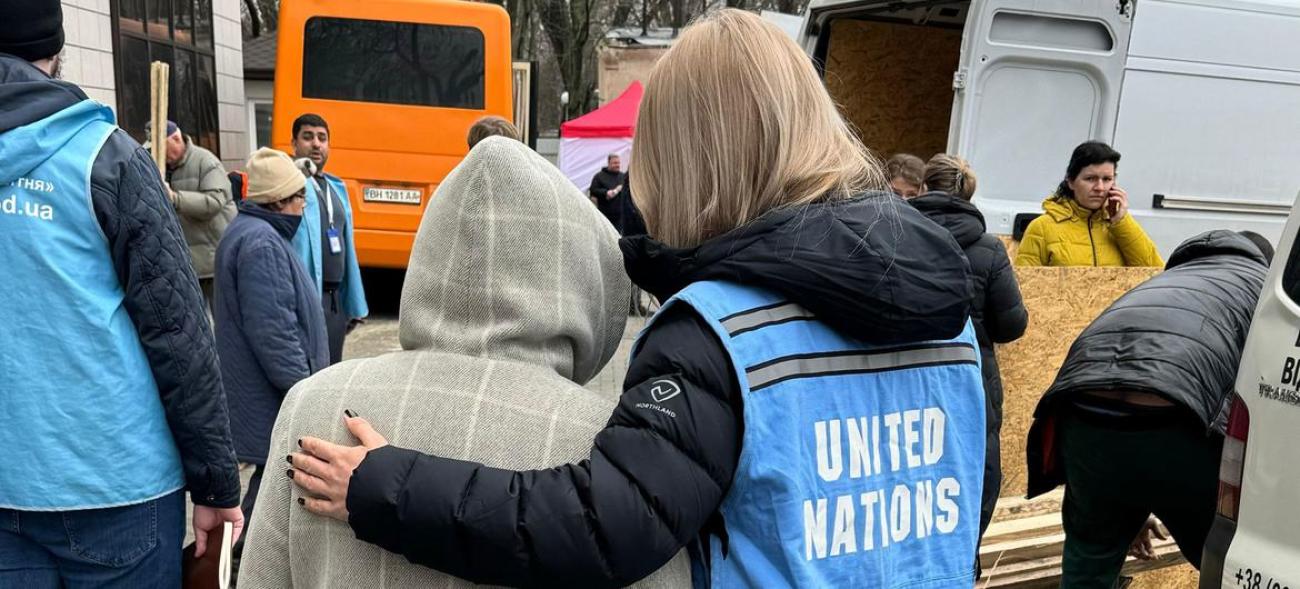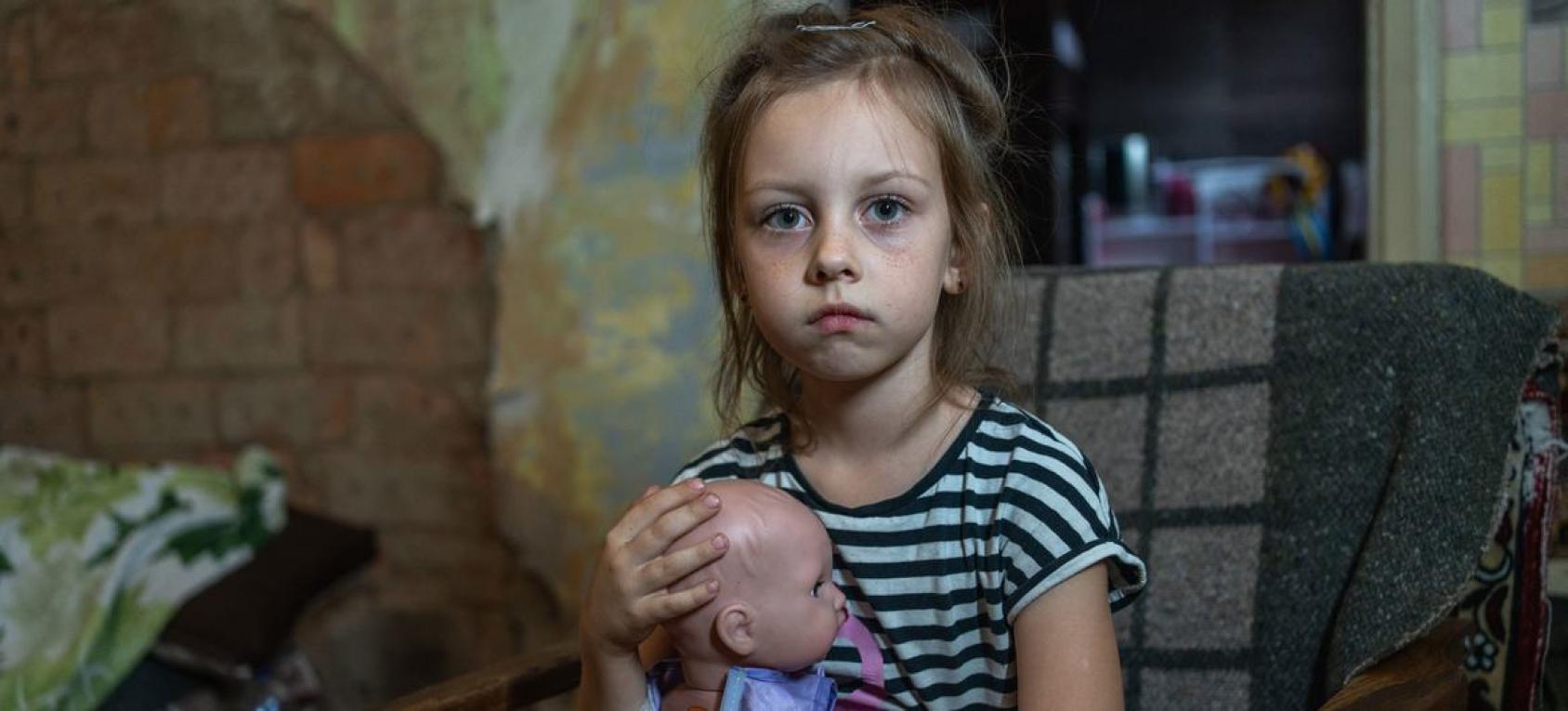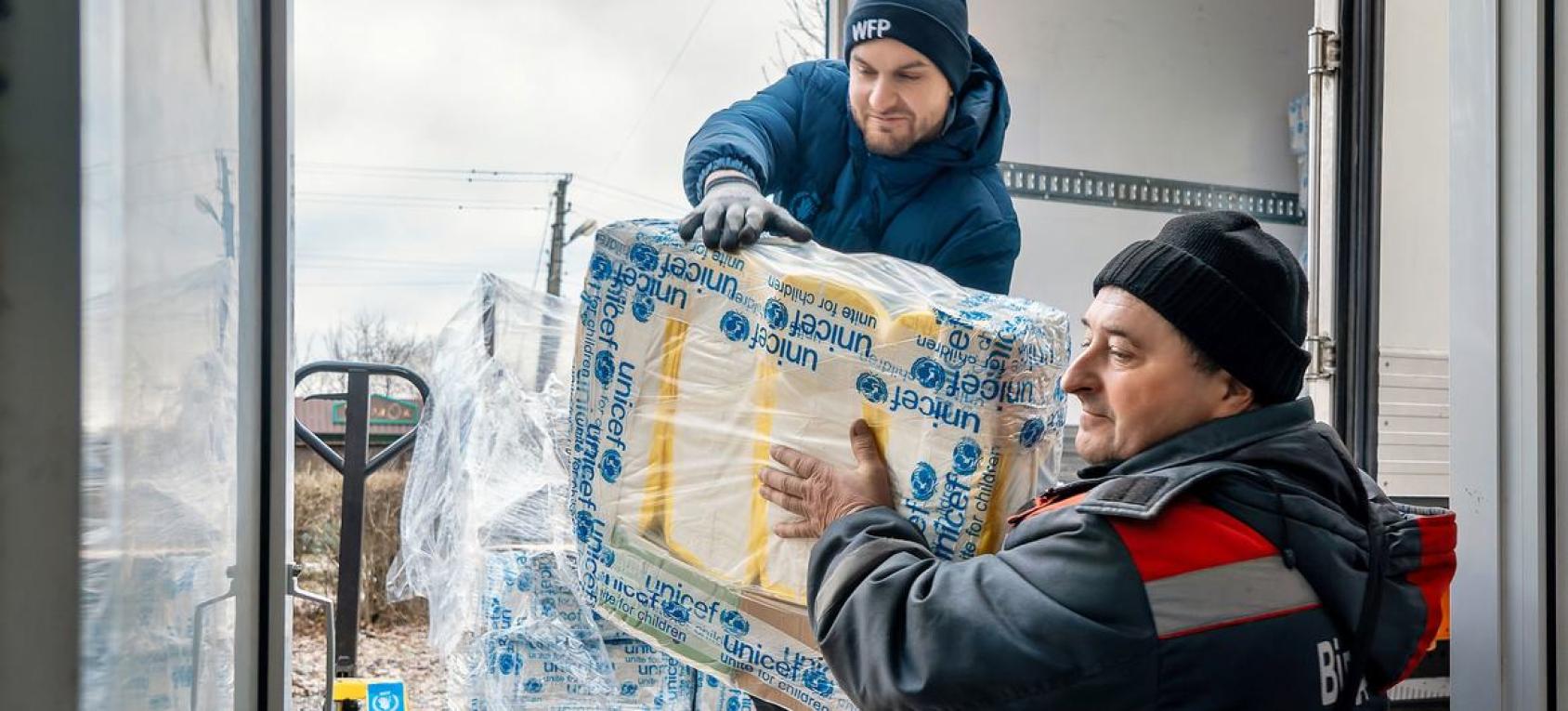UN in Ukraine continues recovery and development efforts

As the Russian invasion of Ukraine reaches its third year, UN Resident and Humanitarian Coordinator Matthias Schmale is leading intensifying efforts to advance recovery and development initiatives amid the protracted crisis. In a first-person interview with UN News Mr. Schmale shares insights into the UN’s multifaceted approach to supporting Ukraine’s immediate needs and long-term recovery.
"The UN is already doing incredible work helping to restore energy facilities that have been hit, and without that work the people of this country would be much worse off, especially in these cold conditions.
The World Health Organization (WHO) has reopened or rebuilt primary healthcare facilities along the frontline that were at one point closed or destroyed. If the guns stay silent, we can obviously do much more to help.

A heavy toll on mental health
Our partners, which include governments, appreciate that the UN is all about leaving no one behind, so we are looking at the groups that are likely to be vulnerable once the war ends.
War veterans are one such group. I have been frequently told that around a million people are involved in the fighting, many of them heavily armed. Hundreds of thousands of people will return traumatised from the frontline, after some two to three years away from their families. This could cause tension, including an increase in gender-based violence.
The country will continue to suffer from the impacts of this horrible war for some time, particularly in terms of mental health issues.
Again, the UN System is providing support. For example, the UN Development Programme has helped to develop a digital app specially aimed at veterans, to help them to access the services they might need, and we are running over 80 “safe spaces” where vulnerable people, such as survivors of gender-based violence and children of those internally displaced, can talk about their experiences and receive counselling.
There’s also a lot of speculation that refugees will start to come back, and a few months ago our colleagues in the UN refugee agency (UNHCR), in collaboration with the government, launched a website that gives refugees abroad information about what services they can access when they return, to help them find housing or jobs. We’re trying to be ready to significantly scale up this work.

Ready to deal with any scenario
The big open question is what the ceasefire deal will look like, in particular with regard to the occupied territories in eastern and southern Ukraine. Around a million Ukrainians are living in these regions, and we don’t know what will happen to them. Will there be a demilitarised zone? Will an international peacekeeping force maintain the ceasefire deal? And what are the opportunities for the provision of humanitarian aid?
On the other hand, whilst everyone hopes the guns will be silenced, the opposite could happen. There are several nuclear power plants in Ukraine, and if one of them takes a direct hit, we could all of a sudden be facing a major nuclear catastrophe. Government officials are extremely concerned about this [on 15 February, the UN atomic energy agency, IAEA, reported that a drone strike had pierced a hole in the structure built to prevent radioactive material leaking from the damaged Chernobyl reactor. Despite significant damage, the IAEA recorded no change in radiation levels at the site].
Whatever happens, we are trying to ensure that the UN is as agile and as mentally prepared as possible for any scenario.”













